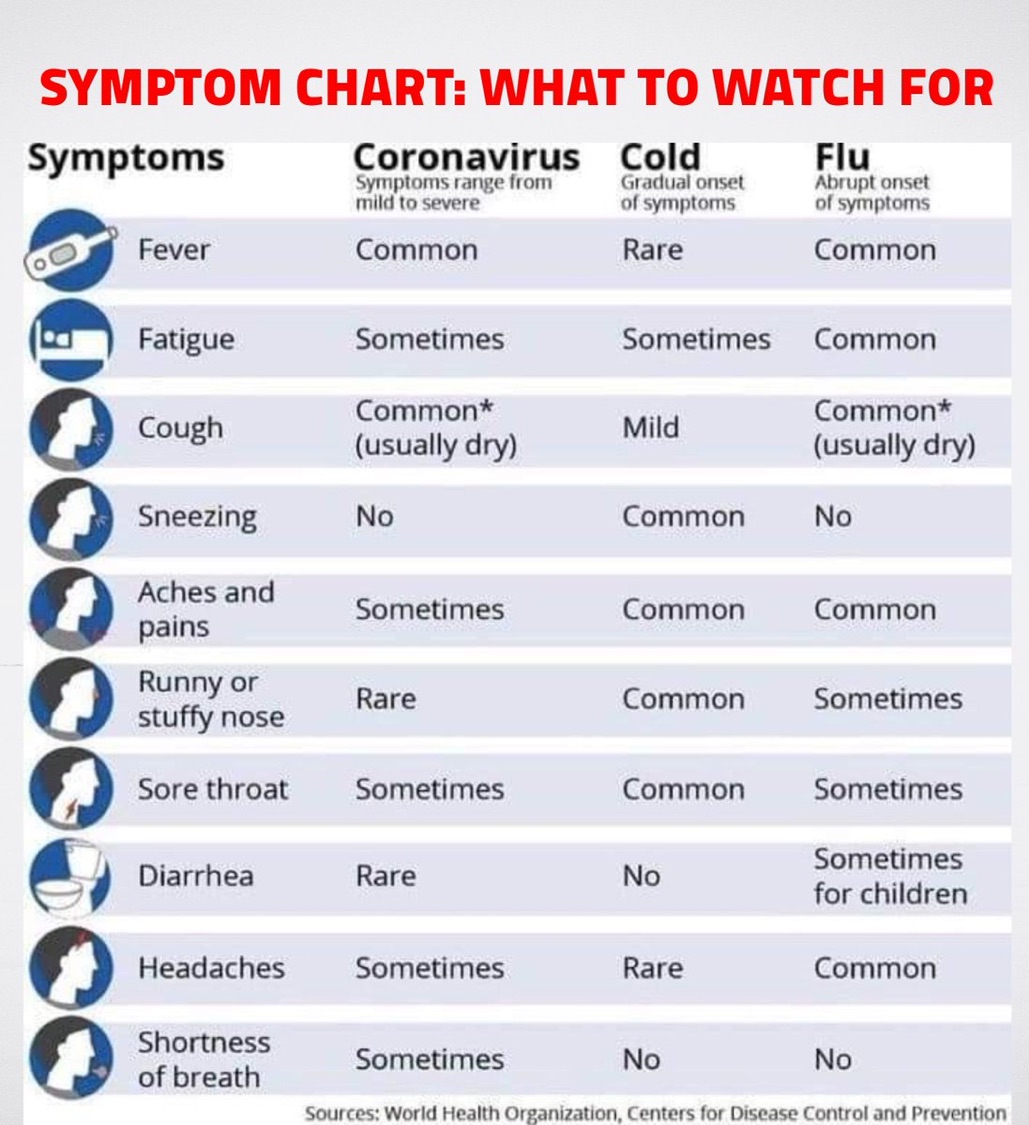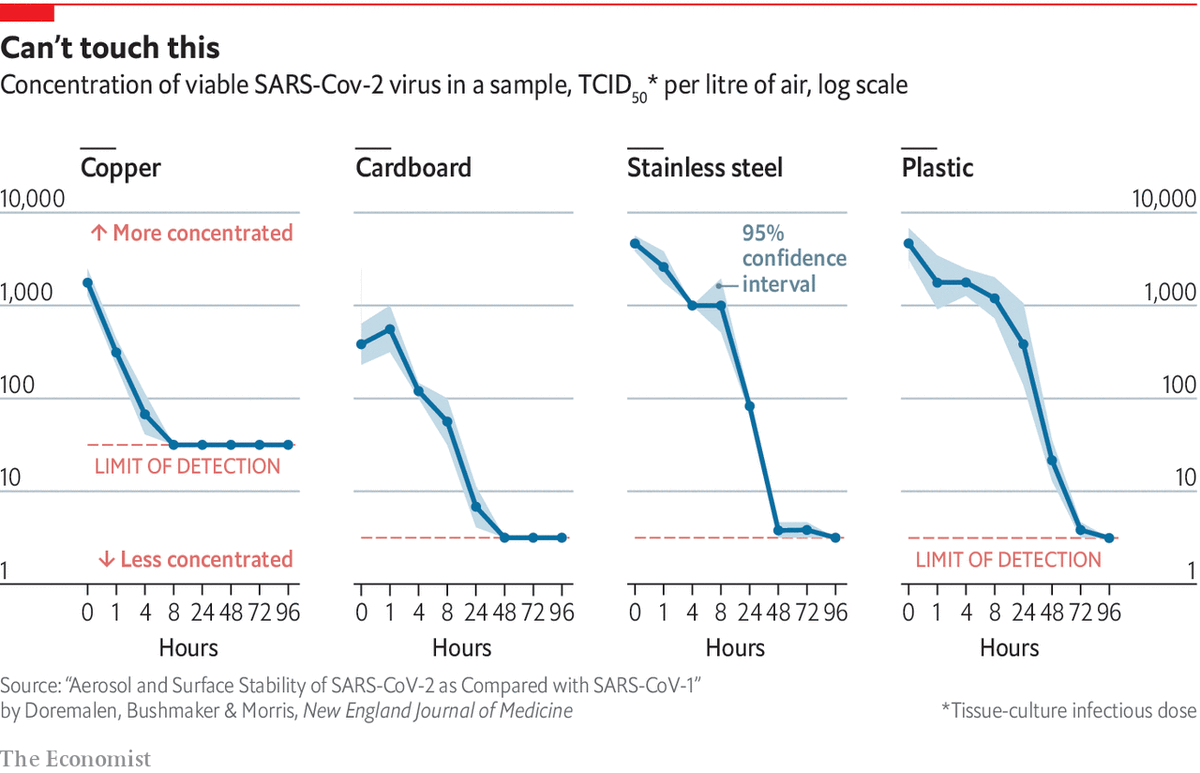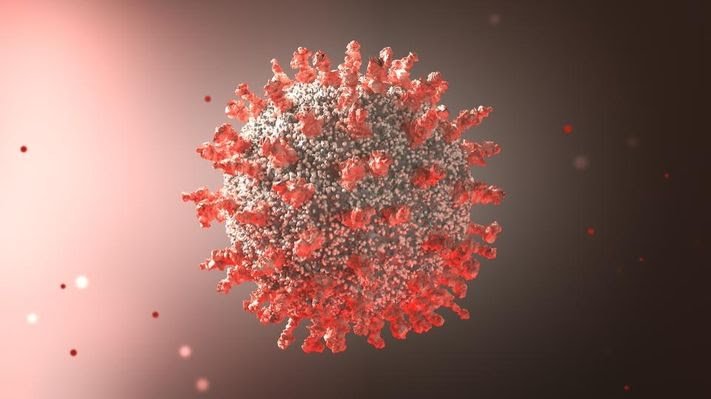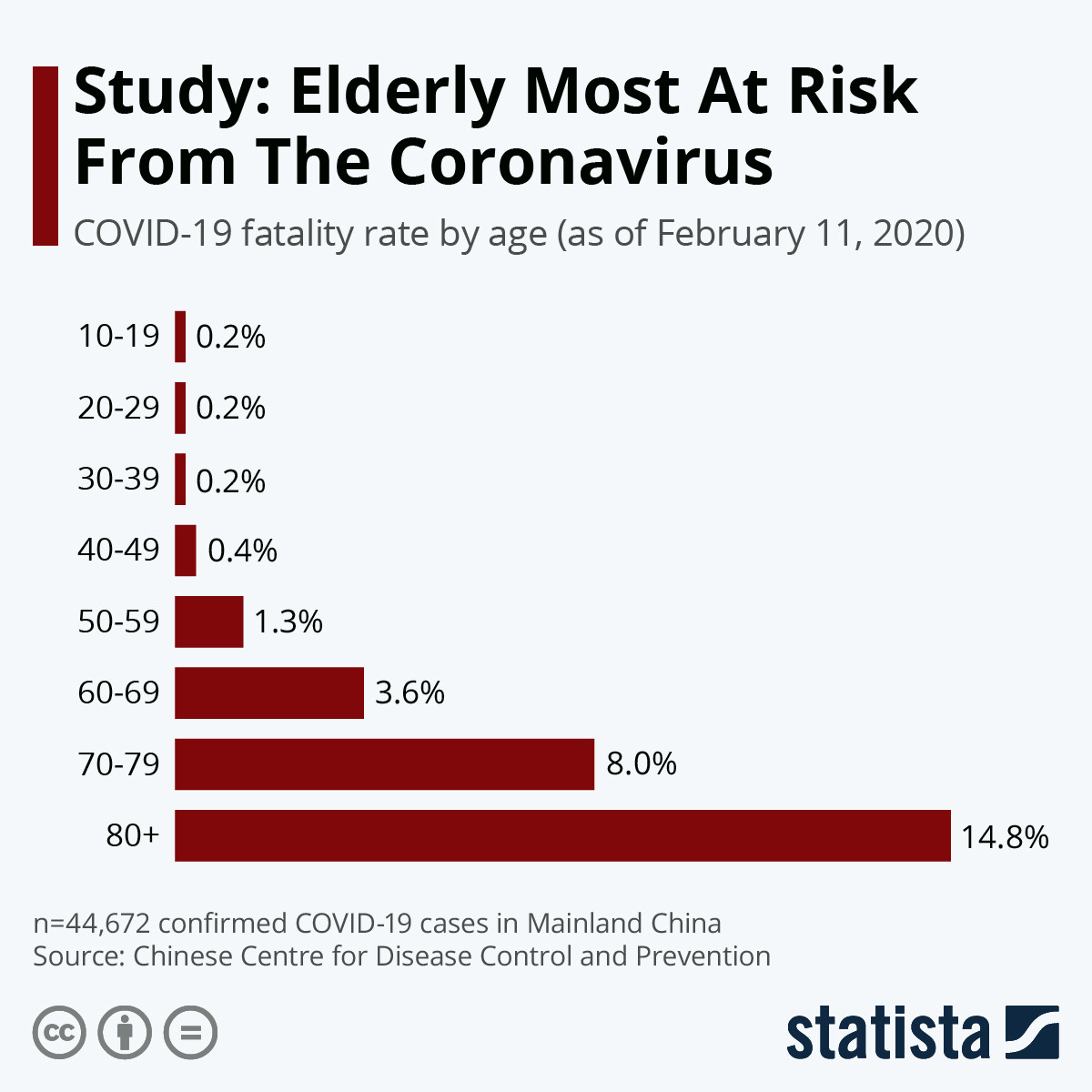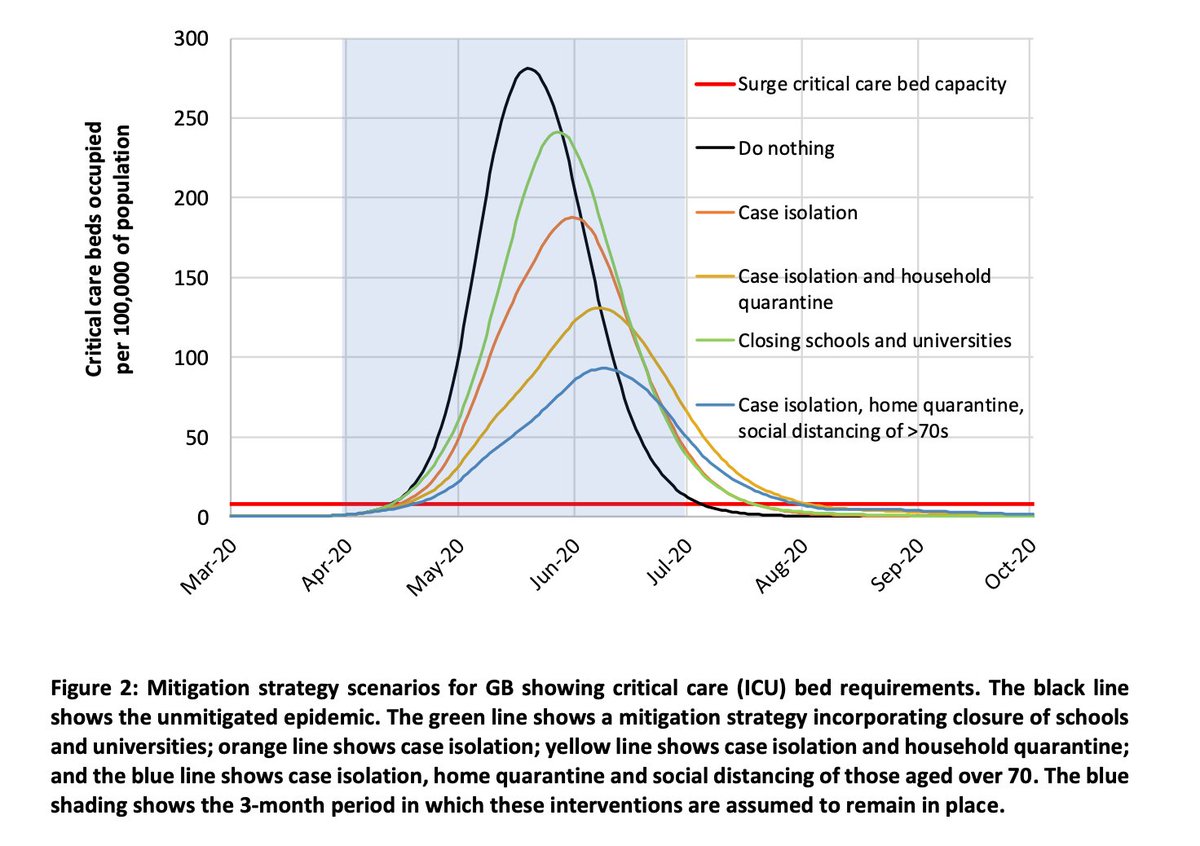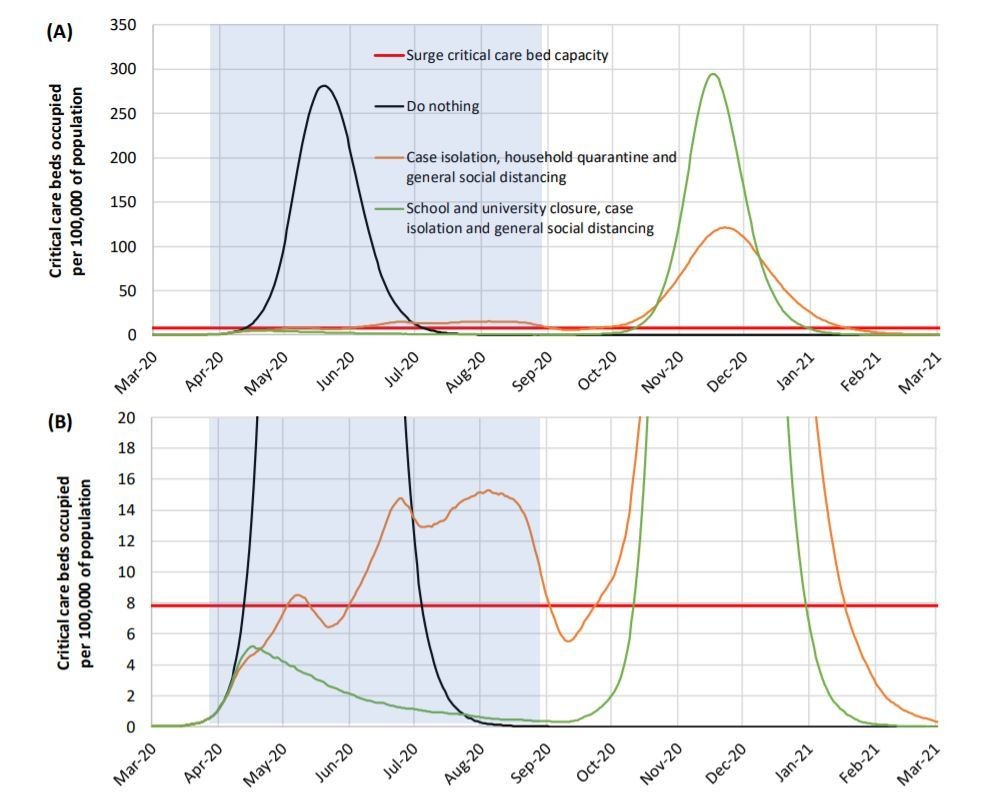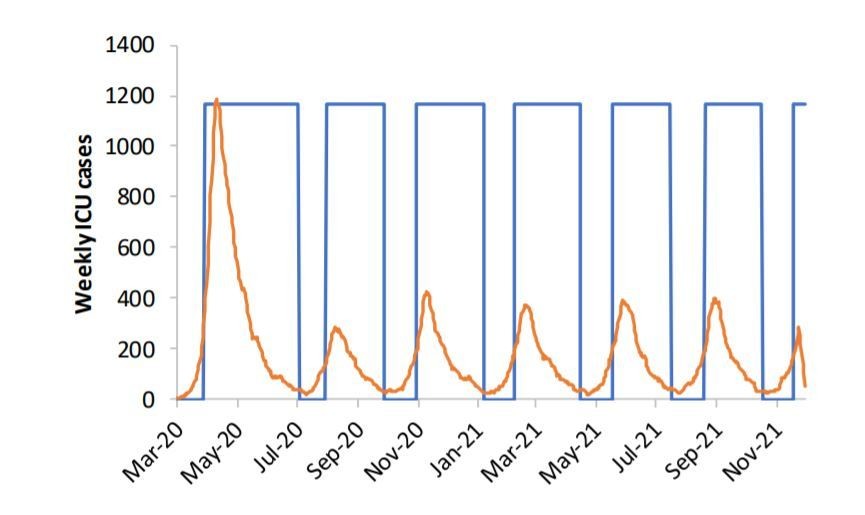Let& #39;s talk some science of SARS-COV-2, the virus that causes covid-19. So what is it? It& #39;s a respiratory virus that can infect the upper and lower respiratory tract (nose, throat, lungs, etc). There are many other respiratory viruses such as the rhinovirus which (1)
causes the common cold. This virus is part of a family of coronaviruses, 4 others of which can also cause the common cold. Now SARS-COV-2 is different than other cold viruses or flu viruses, though it might cause some similar symptoms.
How does it infect people? It& #39;s most commonly transferred through respiratory droplets but can survive on certain surfaces for a few hours to a few days.
It& #39;s a lipid membraned RNA virus that has spike proteins on it& #39;s surface that it uses to enter cells of the respiratory system
It& #39;s a lipid membraned RNA virus that has spike proteins on it& #39;s surface that it uses to enter cells of the respiratory system
by binding to the ACE2 proteins on your cells surfaces. Once attached, it uses an enzyme called furin to enter your cells. Once inside the cell, it works like most viruses, it uses the cells machinery to create copies of itself. These copies can then invade other cells
once released. Now because this is a novel virus that our bodies haven& #39;t seen before, it can take a while for the immune system to recognize that there& #39;s a foreign invader. Once it does, it starts coordinating an attack.
If the virus is still in the upper respiratory tracts (above the trachea and windpipe), you& #39;ll mostly have mild symptoms while your immune system deals with the virus. Some reports say about 18% may have no symptoms at all while infected, although they can still spread it.
Symptoms usually start on average 5-6 days after infection, but can take up to 14days. This is called the incubation period. About 80% of cases are mild. Now the problem comes in if it moves to your lower respiratory system into the lungs where it can cause inflammation of
the bronchial tree which helps to you to breathe in and out. This can lead to more severe cases. In some cases it can even infect your aveoli, the little sacs that allow for the exchange of oxygen and carbon dioxide between your lungs and blood vessels. This can lead to more
severe or critical cases and can cause pneumonia. In more severe and critical cases, your immune system also tends to overreact and can actually cause more damage than help as they try and stop the invader. Since your immune system is preoccupied with fighting off the virus,
it can also leave the door open to secondary infections. Now in mild to moderate cases (80%), you& #39;ll be slightly ill for about 2-3weeks. In severe cases 13.8%, it can take 3-6weeks to recover. The remaining 6.2% can become critical. Fatality rates differ by age group.
Currently the overall fatality rate is about 3.4%, though it is estimated to be lower as this number depends on the reported cases, and with testing still relatively low in most countries, mild cases can often be undected and unreported.
In countries with more widespread testing the fatality rate is as low as 0.6%. Though this is still 6x higher than the annual flu which has a fatality rate of 0.1%. This virus also spreads much faster than the flu.
The flu as a R0 value of 1 (everyone sick person infects about 1 other person) while SARS-COV-2 has an R0 of about 2.4-4 depending on the density of the population it& #39;s spreading in.
Now, what can be done medically to combat Covid19? Currently there is no vaccine and we can just treat the symptoms as they present themselves. Though many dedicated researchers are working on getting out a vaccine within the next 12-24 months.
Now this might seem like a long time, but it& #39;s record breaking as most vaccines take anywhere from 10-20years to become available to the public. Many different types of vaccines are being tested. The most promising being the RNA vaccine.
Other treatment methods are also being looked into for those who are already sick. You might have heard the hype over using the malaria drug hydroxychloroquine or using HIV medication.
Now keep in mind all these are still undergoing trials, so please do not self medicate and many of these medicines have interactions with other medicines and most require you to be monitored while on them.
https://twitter.com/MicrobiomDigest/status/1241429544847863808?s=19">https://twitter.com/Microbiom...
https://twitter.com/MicrobiomDigest/status/1241429544847863808?s=19">https://twitter.com/Microbiom...
Unfortunately because of the spread of misinformation, people have already been hospitalised due to chloroquine poisoning. https://www.bloomberg.com/news/articles/2020-03-21/nigeria-reports-chloroquine-poisonings-after-trump-praised-drug?utm_source=url_link">https://www.bloomberg.com/news/arti...
Now what can we do while we wait for the vaccine and treatments? This is a tough question to answer. Of we do nothing, the need for critical care beds in the US and UK will be 30x higher than what is currently available.
Two main strategies to combat this, mitigation and suppression. Now you might have heard the phrase flatten the curve often. This is in reference to try and slow down the spread of the virus so that the health system can handle the amount of cases needing hospitalization.
Mitigation might be enough for areas not densely populated, but new research for the UK and US has shown it might not flatten the curve enough to not overburden the health system. Which is where suppression comes in.
So lets look at some of these predictions for the UK and US. In the graph it shows that just mitigation (blue line) still causes cases needing critical way over the capacity of the health system (red line) by about 8x.
That brings us to suppression. In suppression (green line) the need for critical care beds is below the the number available. This is good right? Yes, however once these suppression regulations are lifted, the cases take a huge spike again over the capacity (red line).
So what now? Do we need to be in suppression for the entire time until there is a vaccine? Well, this is quite unrealistic isn& #39;t it? So, a strategy would be intermittent suppression and relaxation tactics until such a time that there is a vaccine (graph).
This allows for a small spike during relaxation which can then be treated while we are again under suppression. And so on and so forth. So yes, the next 12-24months, our lives are going to be very different and very difficult.
And worldwide economies are going to take a massive hit. We will need social programs to help those most at risk of falling through the cracks. We need to stand together and help one another and follow the rules set for social distancing as much as we possibly can.
Let us become united in this struggle we& #39;re all facing. Be kind with one another. Be patient. And remember to stay alert but not to panic. /end.
Some interesting developments https://twitter.com/DNA_RNA_Uni/status/1241645562954420224?s=19">https://twitter.com/DNA_RNA_U...

 Read on Twitter
Read on Twitter